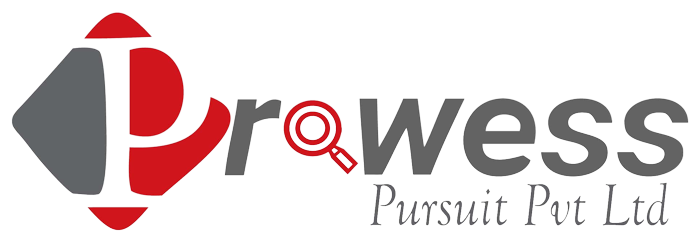
Canada Student Visa – What Is Meaning, Requirements and How to apply
For many Indian immigrants, Canada represents a land of opportunity – a place to pursue higher education, build a career, and experience a high quality of life. If you dream of study abroad in Canada, obtaining a study permit (often called a student visa) is the first crucial step. This guide will equip you with everything you need to know about applying for a Canadian study permit, from understanding its purpose to navigating the application process.
What is a Canada Student Visa (Study Permit)?
While commonly referred to as a student visa, Canada’s official document for international students is a study permit. This permit grants you permission to stay in Canada temporarily for the sole purpose of attending a designated learning institution (DLI). DLIs are universities, colleges, and other institutions approved by the Canadian government to host international students.
Why Choose Canada for Your Studies?
Canada consistently ranks high in global education rankings, offering a world-class education system with internationally recognized degrees. Here are some reasons why Canada might be the perfect fit for you:
- Renowned Universities: Canada boasts several prestigious universities consistently ranked among the world’s best.
- Multicultural Environment: Canada is a welcoming and diverse country, offering a rich cultural experience.
- Post-Graduation Opportunities: A Canadian study permit can open doors to post-graduation work permits, potentially leading to permanent residency.
- High Quality of Life: Canada offers a high standard of living with excellent healthcare and a safe environment.
Requirements for a Canada Study Permit
To be eligible for a Canadian study permit, you must meet the following requirements:
- Acceptance from a DLI: You must have a valid acceptance letter from a DLI in Canada confirming your enrollment in a program.
- Financial Support: You need to demonstrate sufficient financial resources to cover your tuition fees and living expenses for the duration of your studies. This can be through personal or sponsor funds, scholarships, or documented educational loans.
- Medical Exam (if required): Depending on your nationality and the length of your stay, you may need to undergo a medical examination by a physician approved by Immigration, Refugees and Citizenship Canada (IRCC).
- Police Clearance Certificate (if required): In some cases, you may be required to submit a police clearance certificate from your home country and any country you’ve resided in for six months or more in the past five years.
- Meet Immigration Requirements: You must be in good health, with no criminal record that poses a security risk to Canada. You will also need to convince the visa officer that you intend to leave Canada upon completion of your studies.
How to Apply for a Canada Study Permit
The application process for a Canadian study permit can be completed online through the IRCC website. Here’s a simplified breakdown of the steps involved:
Applying Online – Step-by-Step to Apply Canadian Study Permit Online
- Eligibility Check: Head to the Immigration Canada website and use the “Check your eligibility to apply” tool to confirm your online application eligibility. Answer all questions accurately to determine any additional requirements, like co-op work permits or accompanying dependents. If eligible, a personalized reference code will be provided for your application.
- Document Checklist: Print your personalized “Document Checklist” noting your reference code. This list details all required documents you’ll need to submit.
- IRCC Account: Log in to your IRCC account (or register if you haven’t already) and refer to the document checklist for further instructions on steps 5, 6, and 7.
- Application Form: Complete the online “Application for a Study Permit Made Outside of Canada (IMM 1294)” PDF form.
- Gather Documents: Compile all the supporting documents listed on your personalized checklist. Double-check the Visa Office Instructions Guide for your region to ensure no additional documents are required. If so, merge them into a single file for upload.
- Fee Payment: Pay the mandatory CAD $150 processing fee online using a credit card. Capture a screenshot of the confirmation page for your records.
- Study Permit Letter and Arrival: Wait for a Study Permit Letter of Introduction in your MyCIC account. Print it for presentation to the Canadian Border Services Agent upon arrival. This acts as a temporary permit until you receive your official Study Permit. Crucially, upon arrival, verify all information on your Study Permit and confirm “on-campus and off-campus” work provisions are listed under “Remarks.”
- McGill Arrival (Optional): If attending McGill University, upon arrival, scan and send copies of your valid CAQ and Study Permit to Legal Documentation.
By following these steps and gathering the necessary documents, you’ll be well on your way to obtaining your Canada Student Visa and embarking on an exciting academic adventure in the Great White North!
Applying the Old-Fashioned Way: Paper Application Process (For Offline Submissions)
While online applications are preferred, some situations might require submitting a paper application for your Canada Student Visa. This section is specifically for those who are ineligible to apply online.
Here’s a breakdown of the paper application process:
1. Gather Information: Head to the Immigration Canada website (https://www.canada.ca/en/immigration-refugees-citizenship/services/study-canada/study-permit/apply.html) and select your application region. This will provide you with specific instructions tailored to your local visa office.
2. Complete the Application Form: Download and fill out the “Application for a Study Permit Made Outside of Canada (IMM 1294)” form. Remember to validate the form electronically before printing, signing, and dating it.
3. Prepare Supporting Documents: Carefully review the “Document Checklist” provided by Immigration Canada. Additionally, consult the Visa Office Instructions Guide for your region to ensure there aren’t any additional documents required that might not be on the checklist. Gather all necessary documents from both sources for a complete application.
4. Pay the Fees: The application fee for a Study Permit is CAD $150. You’ll need a credit card to pay online and print a receipt to include in your application package.
5. Submit Your Application: Once complete, you can mail your application (tracked courier service is recommended) or submit it in person at your local Visa Application Centre (VAC). Remember, VACs may have additional fees and forms to complete. Keep an eye out for updates on the VAC news section of the website.
6. Wait and Watch: Following submission, you’ll receive a Study Permit Letter of Introduction via email or with your returned passport through the VAC. Upon arrival in Canada, present this letter to a Canadian Border Services Agent. Your actual study permit will be issued at this point. Double-check all information on your document, including name, date of birth, and work authorization details before leaving the immigration area.
7. Upon Arrival at McGill: Once you’ve settled at McGill University, scan and send copies of your valid CAQ and Study Permit to the Legal Documentation department for their records.
Applying at the Port of Entry (Border) – A Shortcut for U.S. Citizens and Permanent Residents
While applying online is the standard approach for a Canada Student Visa, there’s a quicker option for citizens and permanent residents of the United States. If you hold a U.S. passport or a Green Card, you can apply for your Study Permit directly at a Canadian port of entry, saving you time and streamlining the process. Here’s a breakdown of the four key steps involved:
Step 1: Gather Your Documents, Not Forms
Unlike the online application process, you won’t need to complete any additional immigration forms when applying at the border. However, it’s crucial to have all your supporting documents organized and readily available for presentation to the Canadian Border Services Officer (CBSO). This includes your letter of acceptance, proof of financial support, and any required medical exam results.
Step 2: Be Ready to Pay the Fee
There is a processing fee associated with your Study Permit application, currently set at CAD $150. To avoid delays, ensure you have the necessary funds on hand to pay the officer. They will accept cash, credit cards, or Canadian debit cards.
Step 3: Double-Check Your Permit Details
Once the CBSO has processed your application and issued your Study Permit, take a moment to carefully review the document. Verify that your personal information like name, date of birth, and gender are all accurate. More importantly, check the “Remarks” section at the bottom of your permit. You want to confirm that it explicitly allows for “on-campus and off-campus” work authorization.
Step 4: Don’t Forget Legal Documentation (if applicable)
This step is specifically relevant if you’ll be attending McGill University. Upon arrival at McGill, remember to scan and send a copy of both your valid CAQ (if applicable) and your Study Permit to the Legal Documentation department. This ensures they have your official records on file.
Who Needs a Canada Student Visa?
Thinking about pursuing your studies in Canada, a land known for its world-class universities, cutting-edge research facilities, and stunning natural beauty? From vibrant cities to majestic mountains, Canada offers an unforgettable educational experience. But before you envision yourself conquering a snowy campus or delving into groundbreaking research, it’s crucial to understand if you’ll require a Student Visa.
Here’s a quick guide to see if a Canada Student Visa applies to you:
- Planning a Short Course? If you’re enrolled in a program lasting less than six months, congratulations! You likely won’t need a student visa. However, double-check with your chosen institution’s international student office for any specific requirements.
- Gearing Up for Extended Studies? If you’re aiming for an undergraduate degree, postgraduate studies, or vocational training that exceeds six months, then a Student Visa, also known as a Study Permit, is mandatory. This applies to all levels of education in Canada.
When to Apply for Your Canada Student Visa: Timing is Key!
Obtaining a Canada Student Visa, also known as a Study Permit, is an essential step to embarking on your exciting academic journey in the Great White North. But when exactly should you hit that “submit” button on your application? Here’s what you need to know:
Hold Your Horses Until Your CAQ is Approved (For Quebec Applicants Only):
An important point to remember is that the timing of your Student Visa application depends on whether you’ll be studying in the province of Quebec.
- For Students Outside Quebec: If you’re planning to study in a province other than Quebec, you can apply for your Student Visa as soon as you receive your letter of acceptance from a Designated Learning Institution (DLI).
- For Students Headed to Quebec: If you’ll be pursuing your studies in Quebec, the process involves an additional step. You’ll need to first obtain a Certificate of Acceptance of Quebec (CAQ) from the Quebec government. This certificate confirms that you meet the provincial requirements to study in Quebec. Only once your CAQ application is approved can you proceed with applying for your Canada Student Visa.
Why the Wait for Quebec Students?
The reason for this two-step process for Quebec is that the province has its own immigration selection process for international students. The CAQ ensures you meet these specific requirements before applying for the federal Student Visa.
Remember: Processing times for both the CAQ and Student Visa can vary. It’s wise to factor this in when planning your study abroad timeline. Start the application process well in advance of your intended study start date to avoid last-minute delays.
Supporting Documents: Key Ingredients for Your Study Permit Application
Obtaining your Study Permit requires submitting a complete application package with all the necessary documents. This section breaks down the crucial documents you’ll need to gather, categorized for your convenience.
Remember:
- Always double-check the official Canadian government website (https://www.canada.ca/en/immigration-refugees-citizenship/services/study-canada/study-permit/prepare.html) to ensure you have the most up-to-date document requirements.
- Refer to your personalized “Document Checklist” and the specific Visa Office Instructions for your region. These resources will provide the exact documents needed for your application.
Here’s a closer look at some key documents:
- CAQ Approval Letter (Quebec Applicants Only): If you’re studying in Quebec, a Certificate of Acceptance of Quebec (CAQ) is mandatory. Ensure your CAQ includes the Provincial Attestation Letter (PAL) statement as of January 22nd, 2024.
- Valid Passport: Your passport’s validity should cover your entire study duration in Canada, with a minimum validity of one year recommended.
- Letter of Acceptance: This official document from your chosen Designated Learning Institution (DLI) confirms your admission.
- Proof of Financial Support: Demonstrate your financial capabilities to cover tuition and living expenses. Use the provided resources to find acceptable proof documents.
- Proof of Tuition Payment (For Specific Countries): Students from certain countries, including India, might need to show proof of first-year tuition payment. Verify this requirement with your local visa office instructions.
- Medical Exam Results (if applicable): You can choose to undergo an upfront medical exam or wait for instructions from Canadian immigration authorities.
- Biometric Information (if applicable): Some countries require submitting fingerprints and photographs during the application process.
By following these guidelines and gathering the necessary documents, you’ll be well on your way to a successful Study Permit application!
What is a Statement of Purpose (SOP) for a Canada Study Permit?
Your Statement of Purpose (SOP) is a crucial document when applying for both a Canada Student Visa and admission to your chosen university in Canada. It acts as a powerful tool to introduce yourself, showcase your academic aspirations, and convince the visa officer and university admissions committee that you’re a strong candidate deserving of this exciting opportunity. Here’s a breakdown of what your SOP should typically cover:
- Academic Goals: Clearly outline your academic motivations and future career aspirations. Explain how your chosen program aligns with your long-term goals.
- Course & University Justification: Demonstrate a deep understanding of the specific program you’re applying for and why you’ve chosen this particular university. Highlight aspects of the program and university that resonate with your academic interests.
- Post-Study Plans: Briefly discuss your plans after completing your studies in Canada. This could include pursuing further education, seeking employment in Canada, or returning to your home country with newfound knowledge and skills.
By crafting a compelling SOP that addresses these key points, you’ll increase your chances of securing both your university acceptance and your Canada Student Visa. Remember, you can often tailor the same SOP for both applications, focusing on the specific requirements of each.
How Much Does the Canadian Student Visa Cost? A Breakdown of Fees
Obtaining a Canada Student Visa, also known as a Study Permit, involves some fees. Here’s a quick rundown of what you can expect to pay:
- Standard Study Permit Application: The core fee for a new Study Permit application, including extensions, is CAD $150.
- Restoring Student Status: If you need to restore your student status after it has expired, the total cost is CAD $350. This breaks down into two separate fees:
- Restoring Status Fee: CAD $200, which covers the processing of your request to regain your student status.
- New Study Permit Fee: CAD $150, which applies for the issuance of a new Study Permit upon successful restoration of your status.
Final Words
The prospect of studying in Canada, a land renowned for academic excellence and multicultural vibrancy, can be incredibly exciting. By securing a Canada Student Visa, you unlock the door to world-class education, potential work opportunities, and an enriching life experience.
This comprehensive guide has equipped you with the knowledge to navigate the Canada Student Visa application process. Remember, thorough planning and a well-prepared application are key to a successful outcome.
Further Assistance and Expert Guidance:
For those seeking additional support throughout the visa application journey, consider consulting with reputable immigration consultants. Prowess Pursuit, a leading immigration consultancy firm in Kolkata, can be your trusted partner in navigating the complexities of Canada Immigration. Their team of experienced professionals possesses in-depth knowledge of the latest regulations and procedures, ensuring a smooth and efficient visa application process.
Frequently Asked Questions on Canada Student Visa
How much does a student visa cost in Canada?
The current application fee for a Study Permit is CAD $150 (subject to change). There may be additional fees for biometrics and medical examinations (if required).
Is a Canada student visa easy to get?
The ease of obtaining a student visa depends on meeting all the requirements and presenting a strong application. A well-prepared application with complete documentation increases your chances of approval.
How much bank balance is required for a Canada student visa?
The required amount varies depending on your location of study and program duration. Generally, you need to show sufficient funds to cover tuition fees, living expenses, and return transportation costs. A good starting point is to check the cost of living in your chosen city and add it to your tuition fees.
Is IELTS compulsory for Canada visa?
No, IELTS is not the only accepted English language test. You can also submit results from the TOEFL or PTE Academic test.
Can I apply for Canada with 5.5 bands?
The minimum Canadian Language Benchmark (CLB) score required varies depending on the program you’re applying for. Check the specific requirements of your chosen institution. Generally, most programs require a minimum of CLB 7 or higher (equivalent to an IELTS score of 6.0 or higher).
Does IELTS score affect visa?
Yes, your IELTS score can affect your visa application. A score that meets or exceeds the program’s requirement demonstrates your ability to succeed in your studies.
How can I get a Canada visa from Kolkata?
You can apply for a Canada Student Visa online through the IRCC website. Visa Application Centres (VACs) are located in various cities across India, including Kolkata. You may need to visit a VAC to provide biometrics (fingerprints and photograph).
What is the fastest way to get a student visa for Canada?
There’s no guaranteed “fastest” way. However, submitting a complete and error-free application early can help expedite processing. Remember, processing times can vary depending on your situation.




